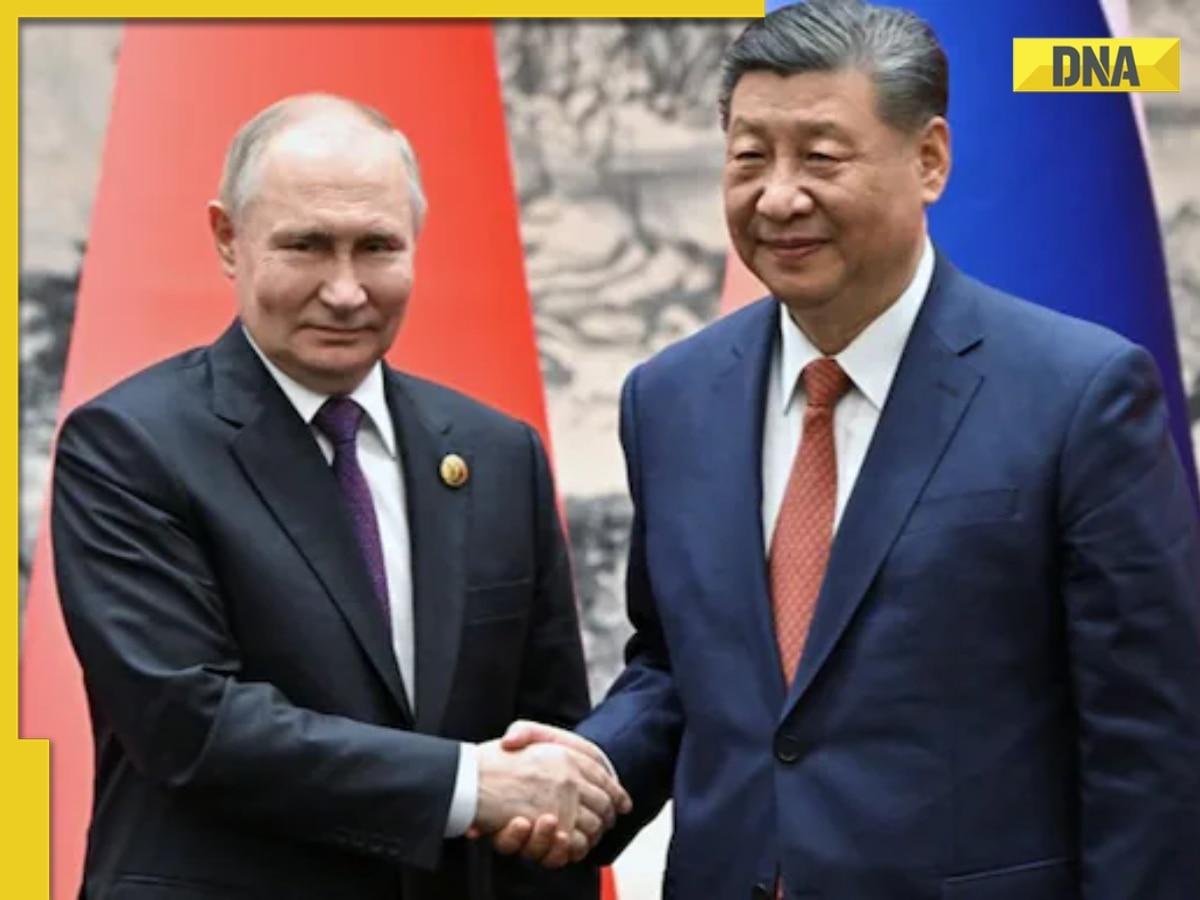
Russian President Vladimir Putin and Chinese leader Xi Jinping on Thursday reiterated the strength of their “no-limits” partnership that has intensified with mounting tensions between both nations and the West. In their summit held in Beijing, the two leaders leveled criticism against US military alliances in Asia and the Pacific region, positioning their cooperation as a counterbalance to American influence.
During this pivotal meeting, Putin expressed gratitude to Xi for China’s proposals aimed at ending the ongoing war in Ukraine—a conflict that began escalating significantly in February 2022. However, Ukraine, backed by its Western allies, dismissed China’s propositions as being heavily skewed towards Russia’s perspectives.
Putin’s two-day state visit to Beijing underscores the burgeoning relationship with one of Russia’s staunchest allies and key trading partners. This visit comes at a critical juncture as Russian forces mount an offensive in Ukraine’s northeastern Kharkiv region, marking the most substantial border incursion since the onset of the full-scale invasion.
Though China claims a neutral stance in the Ukraine conflict, it has supported Russia’s assertions that the West provoked the attack. Furthermore, China continues to supply essential components that Russia needs for its weapons manufacturing. Despite preventing a clear denunciation of the invasion, China floated a broadly worded peace plan in 2023. This plan, which called for a cease-fire and direct talks between Moscow and Kyiv, was met with rejection from both Ukraine and the West, primarily because it did not mandate Russia’s withdrawal from occupied territories.
In a symbolic gesture aligning with Russia, China echoed Moscow’s allegations about Nazism in Ukraine. The joint statement issued on Thursday pledged to uphold the post-World War II order and condemned any glorification or resurgence of Nazism and militarism. This narrative bolsters Putin’s rationale for the invasion, which he has framed as a “denazification” effort, despite Ukrainian President Volodymyr Zelenskyy’s Jewish heritage and his family’s history of suffering during the Holocaust.
The predominantly ceremonial visit highlighted the fortitude of the Sino-Russian partnership as both nations navigate strained relationships with the US and Europe. According to Hoo Tiang Boon, a researcher specializing in Chinese foreign policy at Singapore’s Nanyang Technological University, the summit served as a powerful signal of unity. “Both sides want to show that despite global developments and the pressures they face from the US, their alliance remains steadfast,” he said.
While Putin and Xi publicly voiced their desire to end the war, they did not present any new proposals. “China hopes for the early return of Europe to peace and stability and will continue to play a constructive role toward this,” Xi emphasized in prepared remarks delivered at the Great Hall of the People in Beijing. Xi’s words were reminiscent of China’s earlier peace overture.
As part of the ceremonial proceedings, Putin was greeted with military honors in Tiananmen Square. Following his engagements in Beijing, the Russian President traveled to Harbin, where he was scheduled to attend several events on Friday. On the eve of his arrival, Putin remarked that China’s peace proposal could be foundational in kickstarting a political and diplomatic process that acknowledges Russia’s security concerns while facilitating a sustainable and long-term peace.
However, the conditions for negotiations laid out by Zelenskyy include the restoration of Ukraine’s territorial boundaries, the withdrawal of Russian troops, the release of prisoners, a tribunal for aggressors, and security assurances for Ukraine. These stipulations stand in stark contrast to the components of China’s peace plan.
As Russia launches its latest offensive and the war enters a critical phase, Ukraine’s military, depleted and awaiting fresh supplies of anti-aircraft missiles and artillery shells from the United States, finds itself at a strategic crossroads. Meanwhile, China and Russia jointly criticized US foreign policy, condemning US-formed alliances as a remnant of a “Cold War mentality.”
In their joint statement, China and Russia accused the US of deploying land-based intermediate-range missile systems in the Asia-Pacific under the guise of joint exercises with allies. They argued that these actions were shifting the balance of power and compromising the security of countries in the region, signaling China’s support for Russia in a rapidly changing global power dynamic.
This high-profile meeting reaffirmed the “no-limits” relationship China and Russia had signed off on in 2022, just before Russia’s invasion of Ukraine. Since then, Russia has increasingly relied on China economically, as Western sanctions have restricted its access to the global trading system. Last year, mutual trade between Russia and China surged to USD 240 billion, aiding Russia in mitigating some of the harsher effects of the international sanctions.
Russia has diverted the majority of its energy exports to China and has relied on Chinese firms to procure high-tech components crucial for its military industries, thereby circumventing Western-imposed sanctions. Echoing this economic interdependence, Xi stated, “President Putin and I agree that we should actively seek common ground for mutual interests, exploit each other’s advantages, and deepen the integration of our interests to achieve collective successes.”












